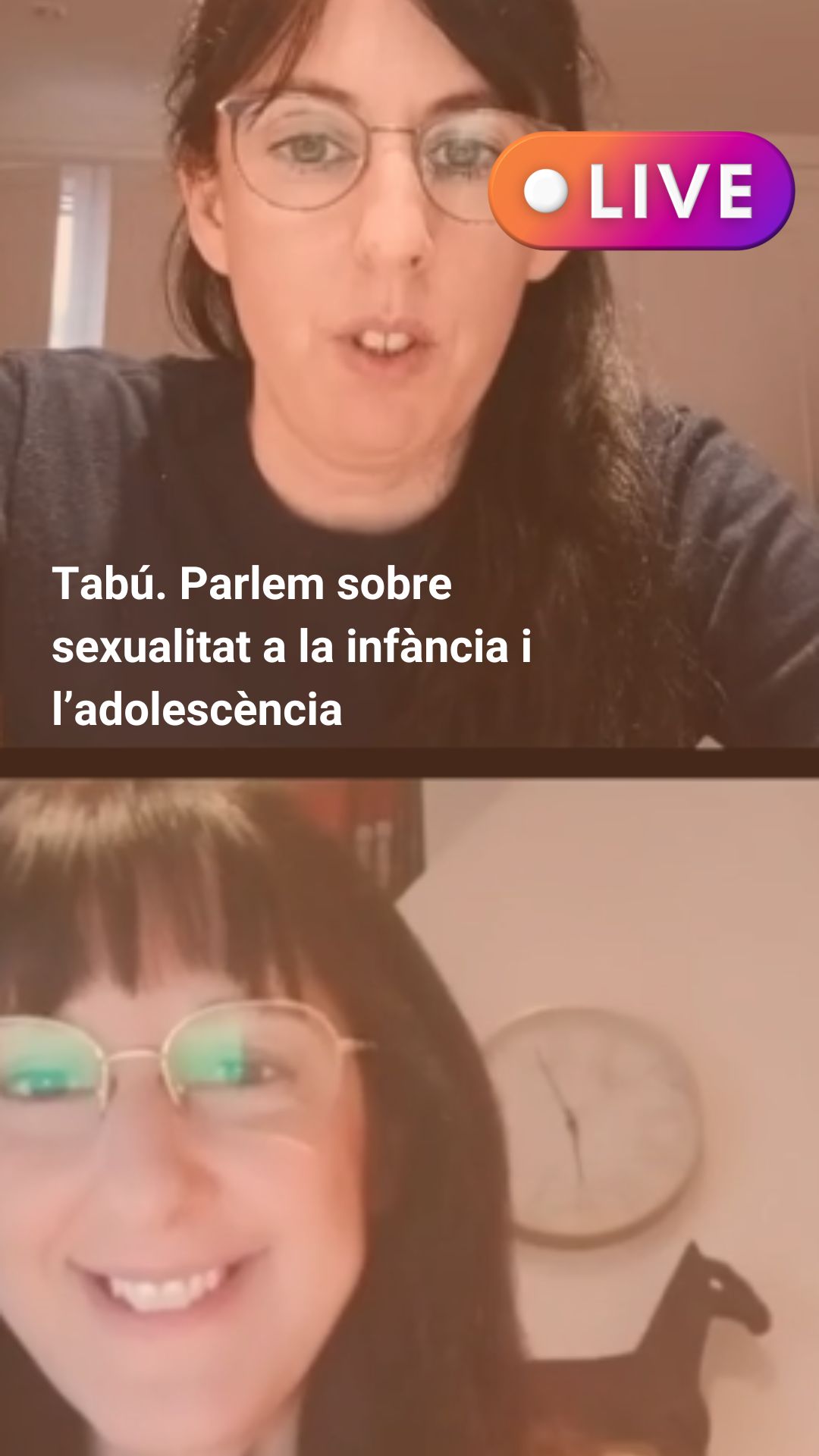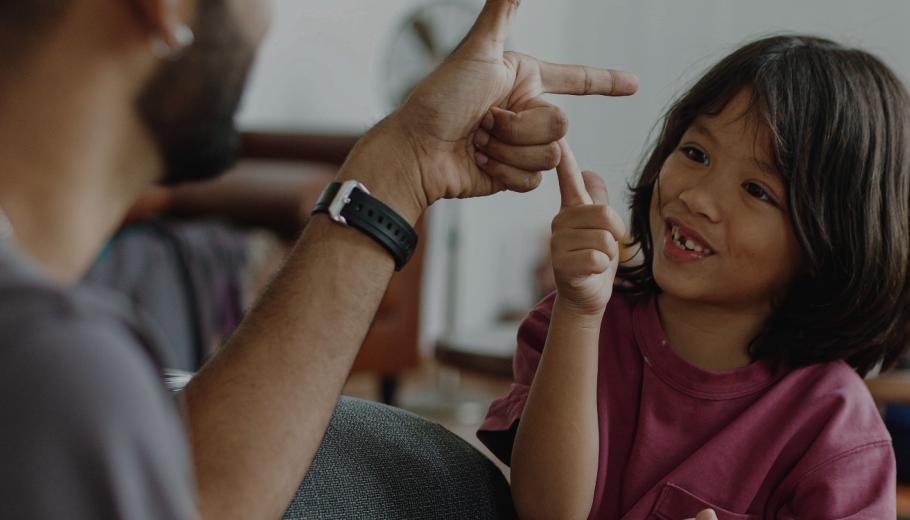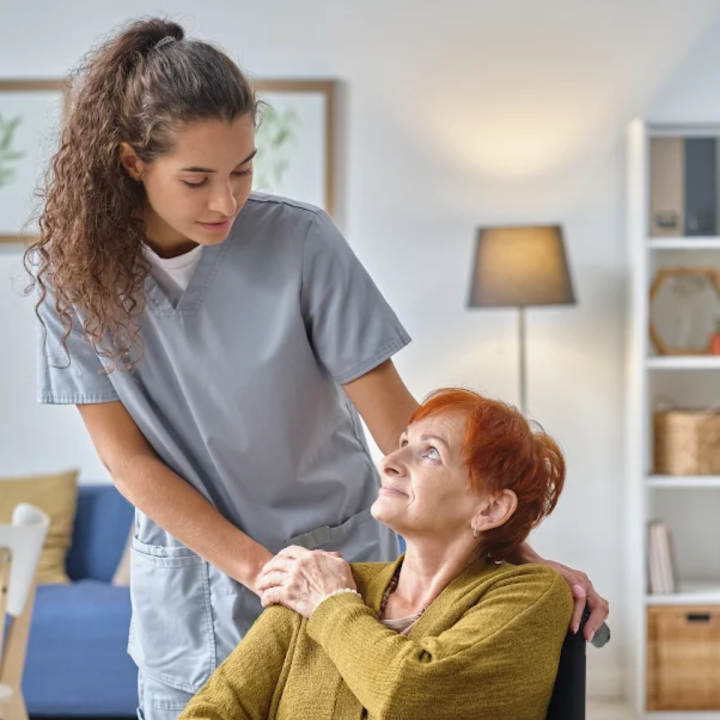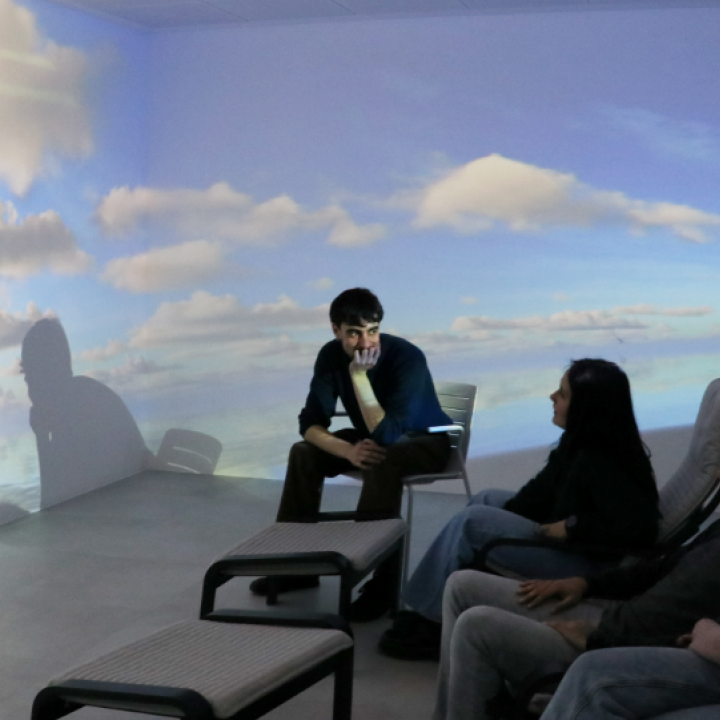Early sex education is essential for the healthy development of children, adolescents and young people. To address the issue, colleagues Ana Belen Jarillo and Maria Fernández, professionals who serve children, young people and families at Suara Cooperativa, talked and answered questions from families and other members of the educational community.
In early childhood, the discovery of one's own body begins, and gradually the interest in the difference in genitals between the sexes, in parallel with looking at their adult references and learning through imitation.
Why should we break a taboo?
Because we are very afraid of certain topics such as sexual abuse, and fear is the mechanism by which all taboos are protected. This anxiety means that we often don't talk about issues that we don't know how to deal with. To remedy this, there are prevention and awareness campaigns such as the “1 in 5” campaign.
How can we accompany them properly?
Normalize the issue of sexuality and talk openly and naturally from a very young age. Because when the worries appear, you can face them without waiting for the teenage stage.

What do we do when we reach adolescence (from the age of 12)?
Biologically and physiologically, adolescents go through a series of changes, which impact both the emotional and behavioral spheres, and they may need many answers. However, before reaching the adolescent stage there are aspects that can be cultivated beforehand such as self-esteem and acceptance of one's own body. From home it is interesting to be careful with our communication with them, family roles, and review the gender roles that we instill socially such as aesthetic pressure, especially in girls...
In this sense, it is essential that they feel safe to communicate and consult the relevant people (families, educators, etc.) about the issues that concern them. And to be a trustworthy person we must know them and be genuinely interested in their interests and concerns.
On the other hand, we must be attentive to the rest of the messages and sources of information they consult and accompany them in fostering a critical sense, since they only stay at 8% of the information we give them at home.
In addition, we can encourage self-care and body esteem, focus on their empowerment and review our expectations towards our children.
Finally, identify the right time to introduce a topic. Sometimes we decide to address an issue and use a resource that has been recommended to us, and when we share it with the bully or the teenager it doesn't have the desired effect because they are not ready to address the issue.
What can we do as adults?
First, we should check ourselves. If we want to use a resource such as a book on the subject, we must first immerse ourselves, question ourselves, as well as review our own patterns and expectations, and if necessary work on the issues that are difficult for us to manage Because if we face a topic that makes us feel uncomfortable, we will not be a support for these children, teenagers or young people.
In addition, we must be honest and not be scandalized, when they tell us some of their experiences about sexuality, because it is a stage (adolescence/youth) where they have to explore and get to know through relationships. At the same time we must understand that they have certain biological difficulties to modulate impulse control.
How can we prevent abuse?
It's a complicated issue, but it's mainly based on empowerment.
- Educate them in self-esteem and recognize their own limits, to be able to say no, set limits. Like for example not forcing people to kiss due to social pressure, which is increasingly validated by society.
- Lack of self-esteem can make you accept things you don't want to do, so it's a very good abuse prevention strategy.
- Also help them to identify the discomforts of the body, before understanding the cognitive and moral reasons that involve the abuses.
- Accompany them to feel the uncomfortable sensations and emotions in the relationship with others. If we explain to them from a young age, what is normal, such as always asking when we should touch their body (changing diapers...).
- Avoiding complicity through secrets or hiding information among trusted adult family members so they can identify the secret as a strategy of abusive people. In a risky situation, it will be more difficult for them.
- Educate the critical sense to question the information and references to those who have access.
- Become a trusted person, a safe space for them.
When should we worry?
Si estem disponibles i tenim una relació de confiança amb l’infant, poden identificar canvis de comportament, regressions i verbalitzacions de malestar…
How to communicate with them to educate them in self-esteem?
- Know how to listen to them, be present without invalidating them and empower them in their daily autonomy. At the same time we show them our trust in them. Assume competence, verbalize that we are proud of them and that they are capable. That we will be by your side. Let them do the actions they can do alone or with supervision.
- Give them tools so that they have the skills to resolve different situations, such as conflicts...
- On the other hand, in today's times, immediacy can be our own enemy because it makes it difficult for us to work through frustration with patience and enough time. We have to accept that children have a different rhythm than adults.
- And finally, it is also interesting that we enhance their strengths and not only focus on those things that cost them, precisely to cultivate their confidence.
What can we do if changing clothes or diapers is uncomfortable for a child at nursery school?
Identify if she is always a woman or if she is anxious because of a specific situation. It could be the pose he doesn't like, so we can try another one. We can ask the family if they too have noticed something or if there are changes at home. And if you suspect any situation of violence, contact the school management.
Recommended resources
- Book "listening to my guts" -Pepa hornos,
- Song underwear is the limit"
- LaLore, a blog about sex and relationships for teenagers and young adults
- Young center for attention to sexualities (CJAS) free service prevention, treatment and psychoeducation in matters of sexuality. With Whatsapp service
- PrevenSI sexual abuse prevention service
- Young leaders afternoon, to advise teenagers and young people
- Series Sex education
Anna Belén Jarillo
Psychologist, family therapist and child educator who currently works in a socio-educational intervention service in El Prat, where she accompanies families with teenagers in complicated situations. He has also worked with foster children who are victims of violence and in the preventive field in socio-educational spaces. Accompany families to Benestarum, a health and well-being service for working people developed by Suara Cooperativa.
Maria Fernandez
Director of a CRAE, a residential center for educational action in Barcelona, she has training in pedagogy and family mediation. He has worked in an open and family center, and also provides parenting support to families with teenagers in the Benestarum project.





